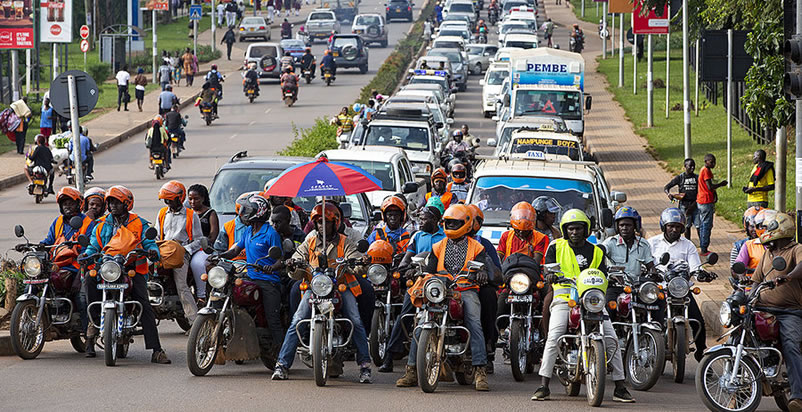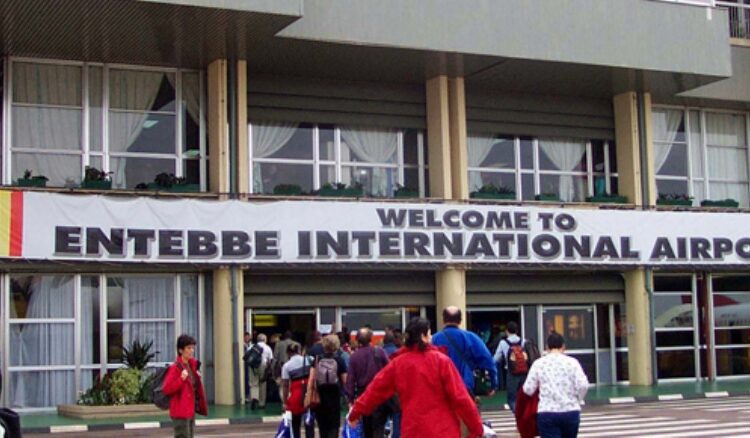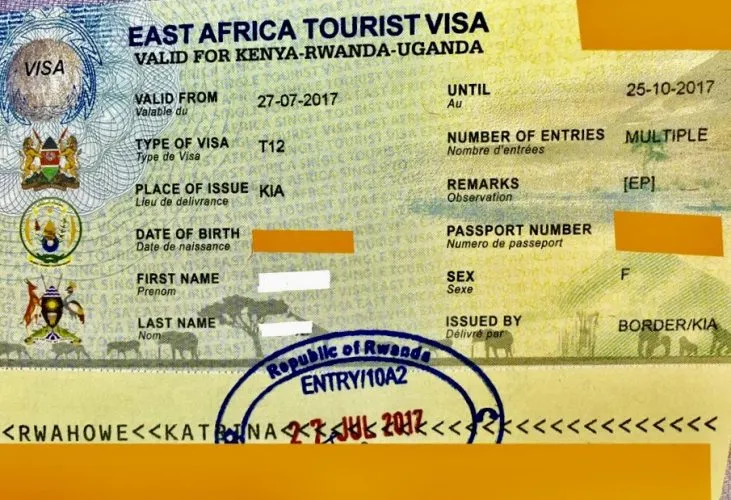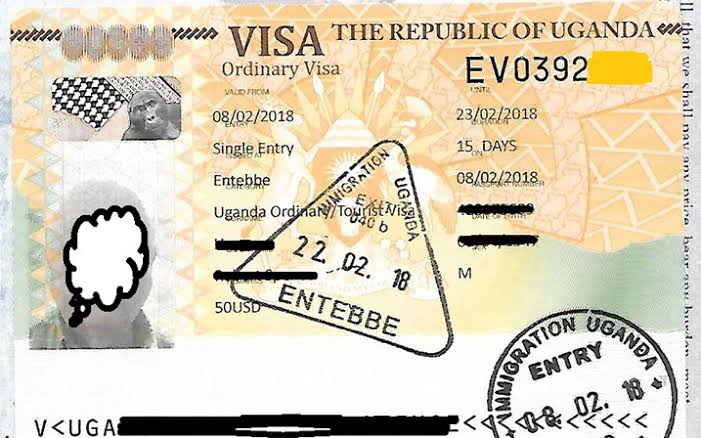
Popular Music and Dance in Uganda | Experiya Tour Company
October 29, 2025
Are Ugandans Friendly to Foreign Visitors? | Experiya Tour Company
October 29, 2025What Is Boda Boda Culture Like?
In Uganda, the heartbeat of everyday life is carried not only by the rhythm of music or the chatter of markets but also by the unmistakable hum of boda bodas — the motorcycle taxis that dominate streets, towns, and even rural paths across the country. For many Ugandans, boda bodas are more than just a mode of transport; they are a symbol of mobility, survival, and community connection. Whether you’re navigating the busy streets of Kampala or cruising through the winding hills of Kabale, the sight — and sound — of boda bodas is a constant companion.
But what exactly is boda boda culture? To understand Uganda fully, one must experience the world of the boda boda — a culture that blends entrepreneurship, social identity, risk, and resilience. For travelers, riding on a boda boda is not only thrilling but also one of the most authentic ways to feel the pulse of the nation.
The Origins of the Boda Boda
The term boda boda has an interesting history. It originated from the phrase “border to border,” referring to bicycle taxis that used to ferry passengers and goods across the Kenya-Uganda border in the 1960s and 1970s. Over time, “border-border” was shortened to “boda boda.” These bicycle taxis eventually evolved into motorcycle taxis as more affordable motorbikes became available in East Africa, particularly in the late 1990s and early 2000s.
Today, boda bodas are everywhere — in Kampala, Gulu, Mbarara, Jinja, Fort Portal, and even the remotest villages. They are the backbone of Uganda’s informal transport system, providing quick, flexible, and relatively cheap travel where buses and taxis can’t reach.
The Role of Boda Bodas in Everyday Life
For millions of Ugandans, boda bodas are an essential part of daily life. They offer a level of convenience unmatched by any other form of transportation. On narrow or muddy roads, they weave through traffic, carry passengers to work, deliver goods, and even help farmers transport produce from villages to markets.
In urban areas, boda bodas fill a critical gap in public transport. They provide “last-mile” connectivity — getting passengers from main roads to their final destinations deep inside neighborhoods. For rural communities, they are lifelines that connect villages to schools, clinics, and trading centers.
In many ways, the boda boda is a democratizer of mobility — accessible to anyone with a few coins in their pocket. A short ride might cost as little as UGX 2,000–5,000 (USD 0.50–1.50), depending on the distance and the bargaining skills of the passenger.
But beyond transport, boda bodas have become a way of life, shaping Uganda’s urban identity, economic opportunities, and social dynamics.
The Boda Boda Rider – Uganda’s Everyday Hero
At the center of boda boda culture is the rider — often referred to simply as the boda guy. These riders are everywhere: parked at busy junctions, chatting in small groups under trees, or zipping between cars in the crowded streets.
For many riders, boda bodas represent hope and self-employment. In a country where formal jobs are limited, owning or renting a motorcycle provides a chance to earn a living. The industry employs hundreds of thousands of young men (and a growing number of women) across Uganda.
A typical boda rider starts their day early — sometimes as early as 6:00 a.m. — after fueling up and cleaning the motorcycle. They may work 10–12 hours a day, carrying passengers, goods, and even livestock. At the end of the day, they take home enough to feed their families, pay rent, and maintain the motorcycle.
Riders are also known for their camaraderie. They form associations or stages — informal gathering spots where boda bodas wait for passengers. These stages serve as community centers where riders discuss news, share meals, or help each other during emergencies.
The Thrill and Art of the Ride
Taking a boda boda ride is a unique experience — fast, flexible, and sometimes heart-pounding. In Kampala’s traffic, boda bodas are the kings of the road, skillfully weaving between cars, gliding through narrow alleys, and conquering potholes that would defeat most vehicles.
For travelers, a boda boda offers a front-row seat to Uganda’s vibrant life. You can smell the street food grilling on roadside stalls, hear the laughter of market vendors, and feel the breeze as you pass through the chaos and charm of the streets.
In smaller towns or rural areas, rides are more relaxed. The roads are scenic — lined with banana plantations, tea fields, and smiling children waving as you pass. It’s an adventure that combines thrill with intimacy — a journey that lets you experience Uganda at eye level.
However, it’s important to remember that while boda bodas are convenient, safety should always come first. Not all riders follow traffic rules, and some may drive recklessly. Travelers should always wear a helmet, agree on the price before the ride, and choose experienced riders from recognized stages or reputable tour companies.
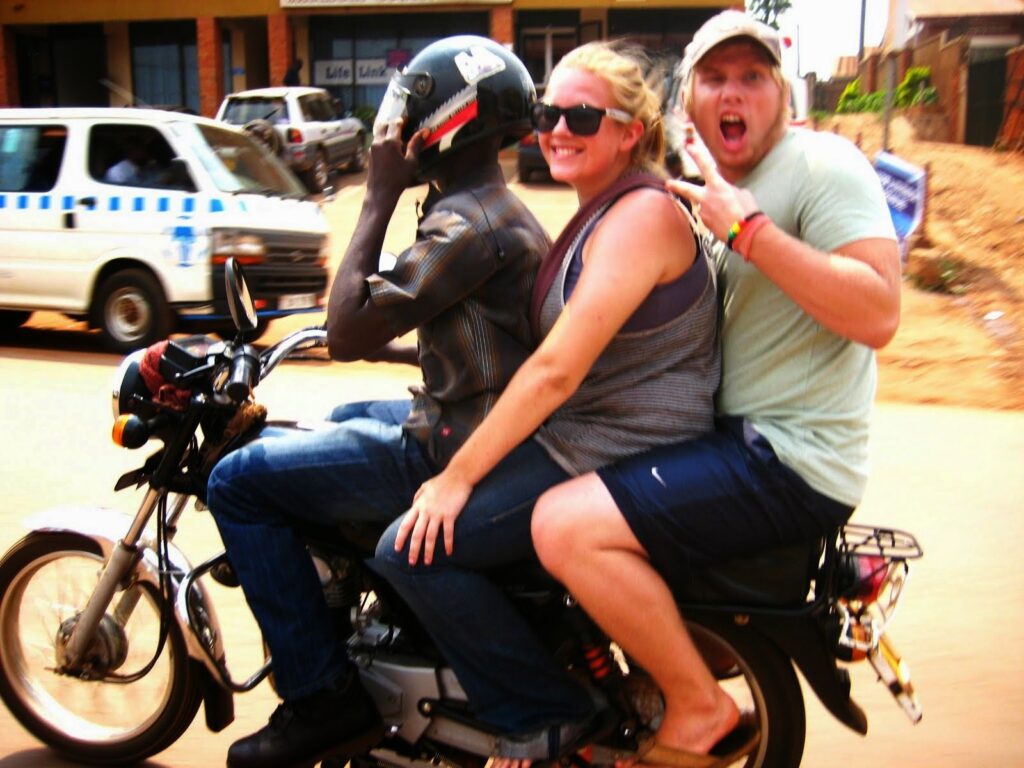
The Social Impact of Boda Bodas
Boda bodas have transformed Uganda’s social and economic landscape in profound ways.
1. Employment and Entrepreneurship
Boda riding is one of the largest informal industries in Uganda, providing livelihoods for thousands of people. Many riders start with borrowed or rented motorcycles and eventually buy their own through savings or cooperative groups. For many young men, boda bodas are their first business venture.
2. Access and Connectivity
Boda bodas reach areas where cars cannot go — especially during rainy seasons when roads become impassable. They connect rural villages to hospitals, schools, and markets, playing an important role in rural development.
3. Emergency Transport
In many remote areas, boda bodas act as makeshift ambulances. When someone falls ill or a woman goes into labor, it’s often a boda rider who rushes them to the nearest clinic or hospital.
4. Cultural Identity
Boda bodas have become part of Uganda’s identity. They feature in music, film, and political discussions. They represent resilience, freedom, and the hustle spirit that defines everyday Ugandan life.
The Risks and Challenges
Despite their importance, the boda boda industry faces challenges. Safety remains the biggest concern. Accidents involving boda bodas are common, often due to speeding, lack of helmets, or poor road conditions.
In response, the Ugandan government and several organizations have launched initiatives to improve safety — such as rider training programs, helmet distribution campaigns, and the introduction of digital ride-hailing services like SafeBoda, Uber Boda, and Bolt. These platforms emphasize professionalism, training, and accountability, helping modernize the industry.
There are also concerns about regulation. Because most riders operate informally, issues like licensing, insurance, and taxation remain difficult to enforce. However, efforts are ongoing to organize boda riders into registered cooperatives that promote safety and financial stability.
The Rise of Digital Boda Bodas
In recent years, Uganda’s boda boda culture has been revolutionized by technology. SafeBoda, launched in Kampala in 2014, became Africa’s first major digital motorcycle taxi platform. The app allows passengers to order safe, professional riders who wear orange vests, carry helmets for both rider and passenger, and follow strict safety guidelines.
Other companies like Bolt and Uber Boda soon followed, transforming how Ugandans book rides. Digital boda bodas not only enhance safety but also bring efficiency, accountability, and convenience. Payments can be made in cash or electronically, and riders receive customer ratings that promote professionalism.
For travelers, these services are a great option for exploring cities safely and comfortably.
Boda Bodas in Pop Culture
Boda bodas are so ingrained in Ugandan life that they’ve become cultural icons. Songs, comedies, and films often feature boda riders as symbols of hustle and everyday heroism. Artists like Eddy Kenzo and Gravity Omutujju have sung about boda life, celebrating the hardworking men who keep Uganda moving.
In Kampala, you can even find boda-themed murals and photography exhibitions showcasing riders as modern urban legends. They represent both the beauty and chaos of Uganda’s urban experience — unpredictable yet full of energy.
The Boda Boda Experience for Travelers
For travelers, hopping on a boda boda is an adventure you can’t miss. It offers freedom, accessibility, and authenticity all in one ride. You can use them for short trips around towns, to explore markets, or to navigate national park towns like Fort Portal and Mbarara.
Here are a few tips to make your experience safe and enjoyable:
- Always wear a helmet — most professional riders carry one for passengers.
- Agree on the fare before the ride to avoid misunderstandings.
- Choose registered or stage riders for safety.
- Avoid night rides unless with trusted guides.
- Keep your belongings secure during the ride.
When approached thoughtfully, boda rides can become one of your most memorable experiences in Uganda — a mix of thrill, connection, and pure African freedom.
Why You Should Travel With Experiya Tour Company
To experience Uganda’s true spirit — from its bustling streets to its peaceful villages — traveling with Experiya Tour Company is the best choice. Experiya understands the importance of local culture and ensures travelers experience Uganda safely and authentically.
Their guided tours include urban exploration and rural adventures where you can ride on boda bodas with trained, reliable riders who know the routes and culture inside out. Experiya’s guides introduce you to boda stages, explain their role in the community, and help you interact with local riders to learn about their lives and stories.
With Experiya, you don’t just see Uganda — you live it. You’ll feel the wind on your face as you cruise through the countryside, hear the hum of city life from the back of a boda, and connect with the people who make this country move.
Book your adventure with Experiya Tour Company today and experience the vibrant world of boda bodas — Uganda’s most thrilling and authentic ride through life.

